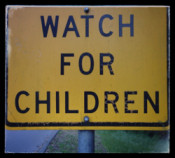
A Parent’s Guide to Safe & Legal Teenage Parties
What to do if you suspect Drug Use
- If you are concerned that your child has been using alcohol or another drug, be open and honest about your feelings.
- It is not unusual to feel overwhelmed by confusion, guilt, anger or fear. Try not to let your feelings get in the way.
- Cool down before thinking about the best way to respond.
What to do that night
- Talk privately with your child during a quiet part of the day when you won’t be interrupted.
- Focus on the behaviors
- Begin by telling your child that something is on your mind that concerns you.
- Mention your specific concerns (e.g. changes in behavior).
- Name calling, scolding, blaming and threatening can create bad feelings.
- Don’t be afraid to set standards and follow through
- Make a firm stand regarding the use of alcohol and other drugs. Often our children wish that we would say “NO” clearly and firmly. Set rules in your home and follow through with the consequences.
- For the time being, don’t ask “why.” If your child admits to using drugs, it will not help to ask why. It is very possible that your child does not know; they may have many reasons.
- If your child does not admit to drug use, don’t push the issue for now. By having this discussion, you have already let the child know that you are concerned and that you are willing to talk about drugs. However, you can use this time to make sure your values and the house rules are well known.
- Ask for help. Don’t be afraid to get outside help. There are many confidential resources available to parents. Find places to start, here.
What Can You Do If Your Son/Daughter Comes Home Drunk or Stoned?
Do . . .
- Try to remain cool and calm.
- Talk to them and try to find out what they have taken.
- Call a doctor or take them to the nearest hospital emergency department if they are seriously ill.
- Tell them, “We will talk about this tomorrow”.
- Check them often during the night if they are in a condition to be sent to bed.
Do Not . . .
- Shout at, accuse or hurt them in any way. All this is quite useless and harmful when they are in this condition
What to do the Next Day
Do . . .
- Talk to them immediately.
- Have them assume responsibility for their actions including clean up.
- Try to find out what happened and whom they were with.
- Let them know you will not accept their behavior and you will be watching them closely in the future.
- Set up guidelines for behavior with your child as well as curfews for going out with friends. Let them know you expect them to follow these guidelines.
- Talk with them about other activities and choices, so they can avoid taking drugs.
Do Not . . .
- Have your discussion with them if you are too angry to talk about it without losing your temper. Wait until you can discuss it calmly. No one gains anything from angry words.
- Try to hide what happened from other family members. Everyone in the family should be aware of what is going on, especially when support and understanding can mean so much.
Our parenting resource guide: Definitions of Terms Used | Parenting Tools | Safe & Legal Teenage Parties | Signs and Symptoms of Substance Abuse |
Ages and Stages of Adolescent Drug Use | Sexual Assault and Bullying | Depression and Suicide | Return to Adolescent Resource Center Parenting Page

